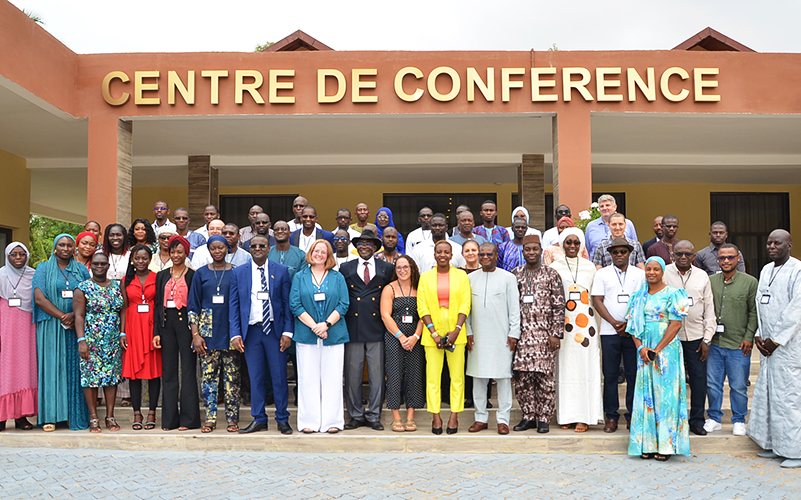
« One Health » experts at the COHWA project meeting
The project partners spent a week together in Saly to continue working on the COHWA initiative focusing on the risk of viral hemorrhagic fevers developing in West Africa, in particular Lassa fever, Ebola, Crimean-Congo hemorrhagic fever and Rift Valley fever. This gathering of experts in human, animal and environmental health, guided by the One Health concept, was organized in the context of a workshop on ecological niche modeling and the annual meeting of the COHWA consortium.
The week began with the ecological niche modeling workshop, which ran from July 19 to 23 and provided essential training for partners in the consortium. The workshop was led by Dr Luis Escobar, assistant professor, and Dr Abu Alkishe, a postdoctoral researcher, both from the department of fish and wildlife conservation at Virginia Tech. The participants, many of whom came from the Institut Pasteur in Dakar, the National Laboratory for Livestock and Veterinary Research (LNERV), the Senegalese Institute of Agricultural Research (ISRA), CICM Mali, Joseph Ki-Zerbo University/Muraz Center and Nazi Boni University, attended presentations on applying ecological niche modeling to medical geography, and the fundamental principles of distributional ecology and ecological niche modeling.
Ecological niche modeling (ENM)Ecological niches refer to the position of a species within an ecosystem. As well as physical spaces, these niches also cover the function or role played by the species. An ecological niche incorporates two sets of parameters: the physical and chemical parameters that characterize the environments in which the organism lives (and which are sometimes significantly modified by the organism), and biological parameters, including relations with neighboring species, the modification of the habitat by the organism and the community of species to which it belongs (long-term interactions). Ecological niche modeling (ENM) is an important tool for assessing the conservation of species, particularly when it comes to:
|
The following two days were dedicated to the annual meeting for the project, allowing each expert to share their knowledge. The participants discussed the progress made so far, the data already collected, the research protocols that have been developed, and the actions that are still to come.
Over the course of these few days, procedures were introduced to ensure the project’s objective—assessing the spatial and temporal risk of hemorrhagic fevers developing in Senegal and in border regions of West Africa—is achieved. This involves understanding the distribution in space and time of these diseases and their propensity to spread.
The workshop and the meeting were organized in accordance with the objectives of the COHWA project, an international collaboration that aims to determine prevalence and risk through the targeted surveillance of high-risk areas identified in West Africa.
More information about the COHWA project
The COHWA project was set up as a result of a collaboration between Pennsylvania State University, USAMRIID, the Muraz Center in Burkina Faso and the Charles Mérieux Center for Infectious Diseases in Mali, which are working together using the One Health approach.
The COHWA consortium is made up of 10 international institutions in the United States (including the Mérieux Foundation USA) and in West Africa and is funded by the Defense Threat Reduction Agency (DTRA) via Penn State University. The local Mérieux Foundation team in Senegal is also supporting the project by managing the logistics and operations of key project activities.
